Food storage hacks most people DON'T know
Preserve your produce

Alexander Prokopenko/Shutterstock
It's always frustrating when, after a big shop, the ingredients you've bought start to spoil before you’ve had a chance to cook with them. Luckily, there are some simple hacks you can use to prolong the shelf life of your favourite produce – from fruits and vegetables to milk and cheese. Not only will your weekly meal plan be saved, but you'll avoid unnecessary food waste, too.
Discover 29 genius ways to make everyday foods and drinks last longer.
Store onions and potatoes separately
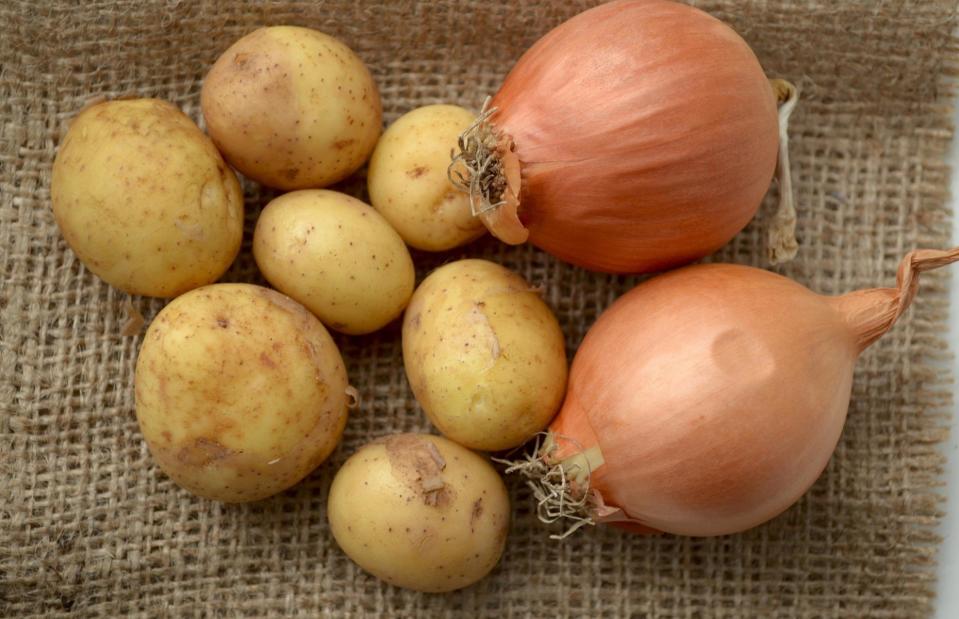
Valentina Sulima/Shutterstock
Potatoes and onions are commonly stored together – but did you know that this can make them go off quicker? Both potatoes and onions produce a gas called ethylene, causing each other to spoil. To prevent this, instead of putting them next to each other, store them in two different brown paper bags in a cool, dark cupboard.
Keep garlic out of the fridge
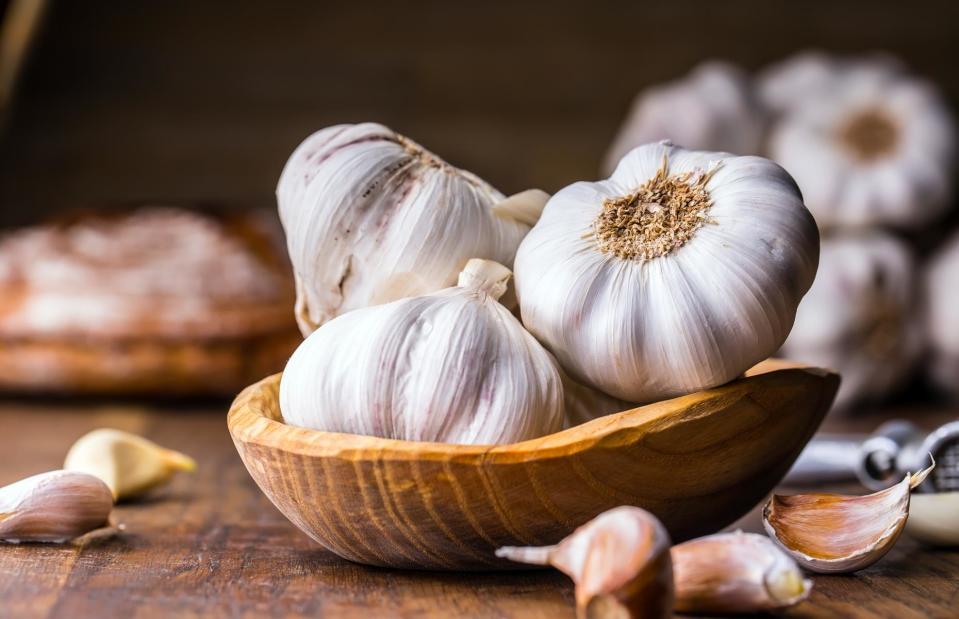
Marian Weyo/Shutterstock
The worst way to store garlic is in a sealed container in the fridge, as this can cause the bulb to sprout and develop mould. Instead, store your garlic somewhere dry and dark, and keep the bulb together for as long as possible. Once you've separated and peeled the cloves, they won't last longer than a week.
Hang up your bananas
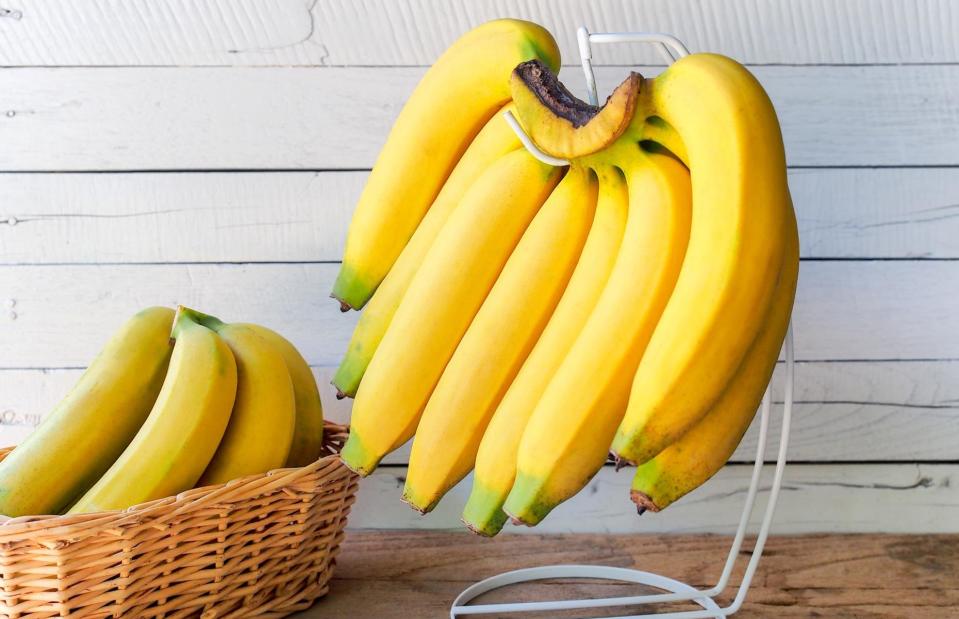
pada smith stockphoto/Shutterstock
Don't put your bananas in the fruit bowl with everything else; invest in a banana hanger instead. This will stop the fruit from getting bruised and going bad too quickly – and as long as the hanger is located somewhere that allows air to move freely around the bananas, it will also help to slow down the ripening process. Keep your bunch away from other fruit, too. Bananas give off ethylene gas, which will cause other produce to spoil.
Don’t put bread in the fridge
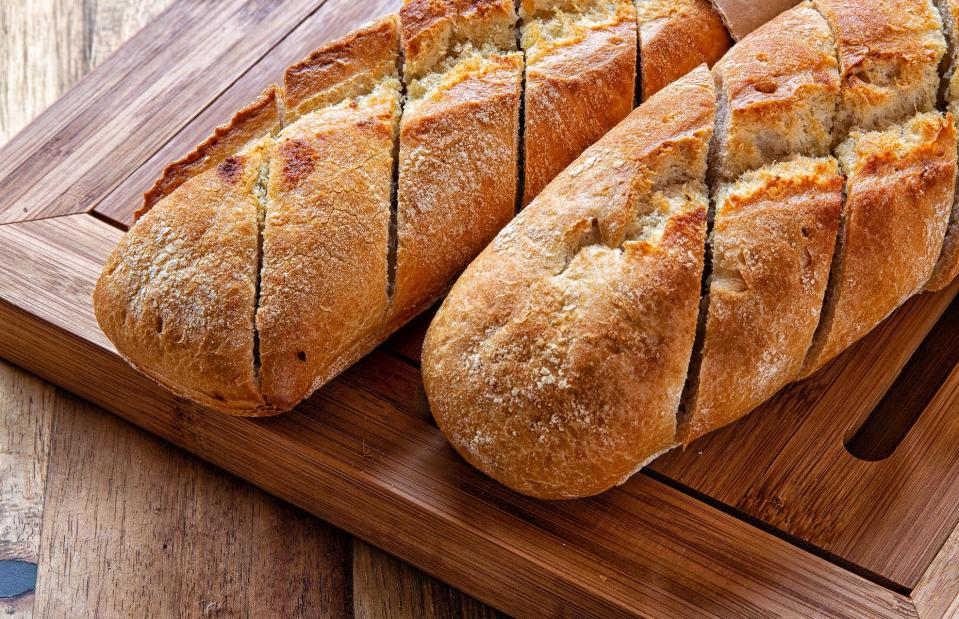
Elena Wein/Shutterstock
Don't be tempted to store your bread in the fridge. Contrary to what you might think, it will spoil more quickly when it's refrigerated than it will at room temperature. Cold temperatures cause the starch in bread to recrystallise sooner than it would in a warmer environment, making it go stale. A bread bin is the perfect place to store your loaves; it will limit their exposure to air and moisture, which encourage mould growth and cause bread to dry out.
Store cheese in waxed paper
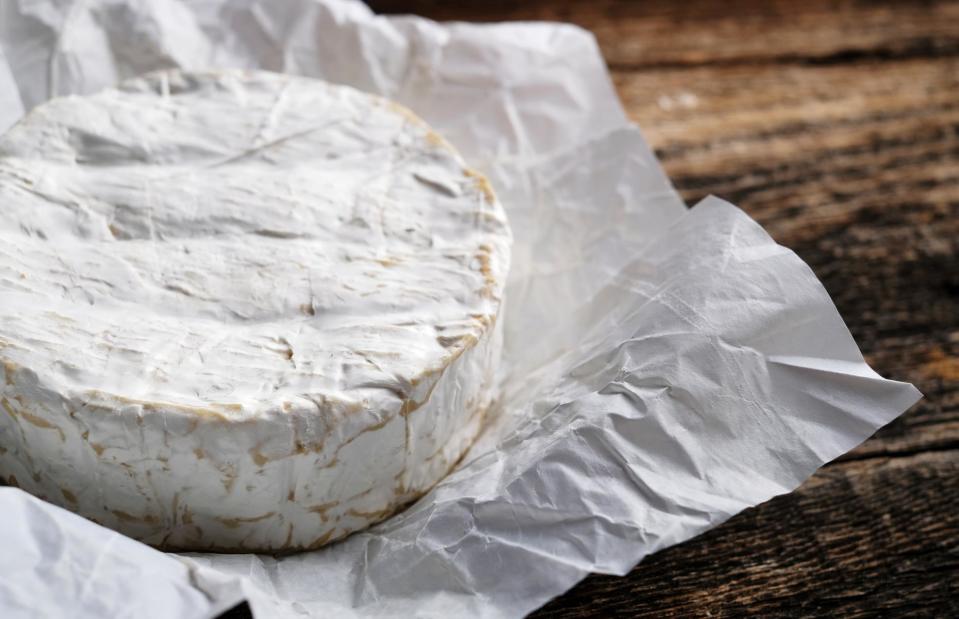
Lelechka/Shutterstock
Most cheeses, especially fine cheeses, need to breathe – so when it comes to storage, cling film and plastic boxes should be avoided. Instead, wrap your cheese in waxed or greaseproof paper and store it in the lower part of the fridge. Keep it away from strong-smelling produce, too; like butter, cheese can absorb aromas.
Store fresh mozzarella in water
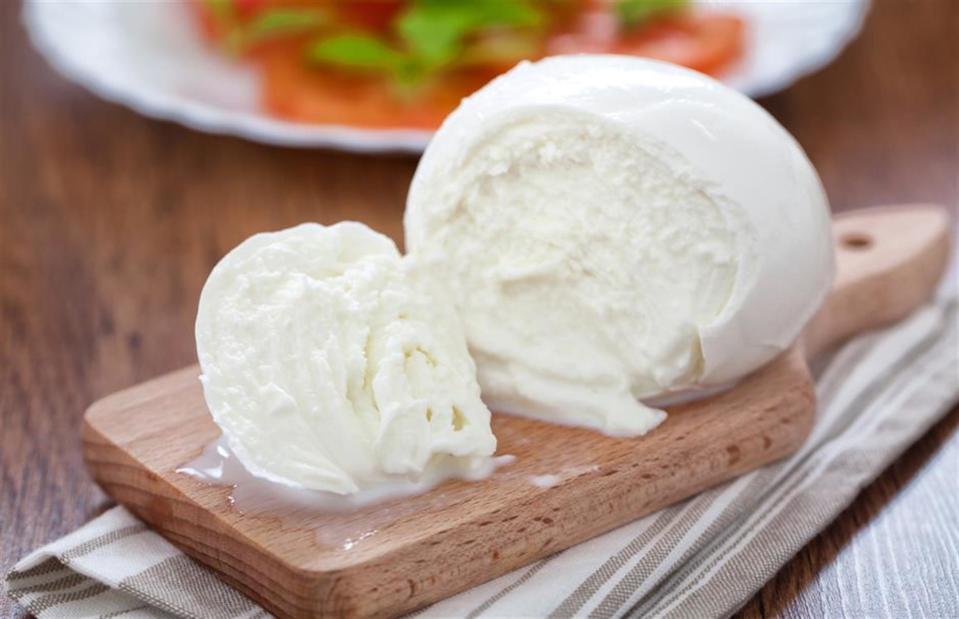
svariophoto/Shutterstock
Balls of fresh mozzarella can quickly dry out or turn sour once sliced. However, it's possible to extend their life – simply save the liquid from the packet they came in, put it in a plastic container along with your leftover cheese, then store the whole lot in the fridge. If you ensure all the cheese is covered, it should last for around three days.
Freeze your fruits

Alena Brozova/Shutterstock
If you’ve got fresh fruit you're not going to eat, bag it up in small portions and freeze it instead. Frozen fruit is handy for lots of recipes – you can use it straight from the freezer to make smoothies or stir into porridge while cooking, or use it to make crumbles, pies and jams. You can freeze almost all fruits, from bananas and mangoes to blackcurrants and apples.
Store asparagus like a bunch of flowers
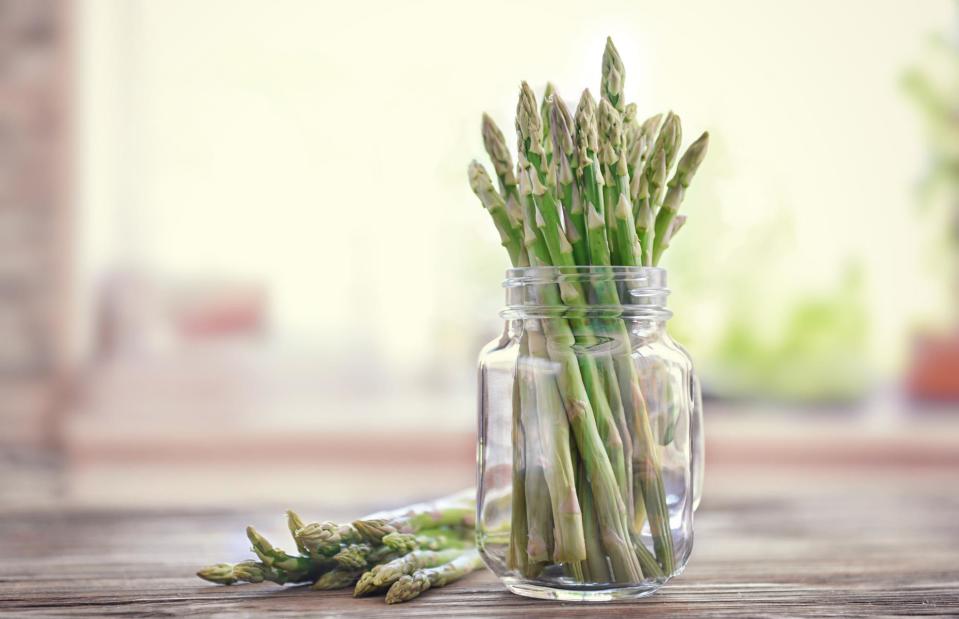
Africa Studio/Shutterstock
After a while, asparagus can start to look a little limp. To keep it fresher for longer, trim the spears, then place them in a small amount of water (just as you would with a bunch of flowers). Loosely cover them with a plastic bag, then put them in the fridge. This will keep them crisp and fresh for longer.
Keep fresh herbs in water
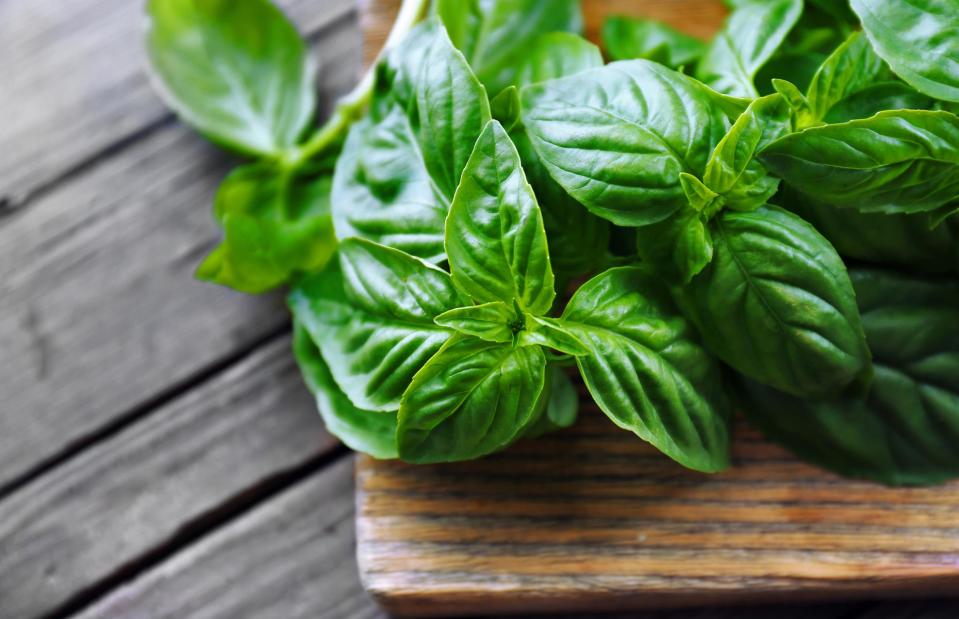
Africa Studio/Shutterstock
Just like asparagus, fresh herbs – such as basil and parsley – fare best when they're treated like a bouquet of flowers. To prevent them from going bad, cut back the stems and place them in a jar of fresh water. Ensure they get enough light, and keep them away from extreme temperatures.
Freeze leftover wine for sauces

Ievgenii Meyer/Shutterstock
While wine will last for a long time if it's left unopened, it will quickly go off once uncorked. There's no real way to keep open wine fresh for long – but you can make the most of it by saving it for cooking. Fill up an ice cube tray with any leftovers, freeze, then defrost as needed to use in sauces or stews.
Don’t let one bad apple spoil the barrel
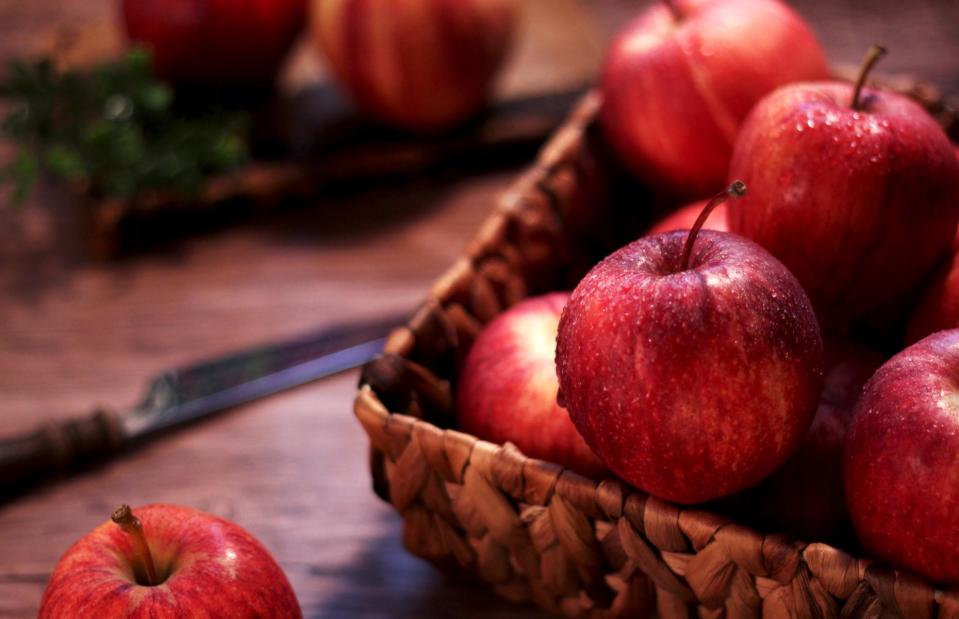
French cat/Shutterstock
We all know the saying – and it turns out that it’s true. As they ripen, apples (much like other fruits) produce ethylene. When you store fruits together, the ethylene from each fruit causes the others to ripen, too. So, if you see an apple looking a little worse for wear, remove it immediately.
Buy an ethylene gas absorber
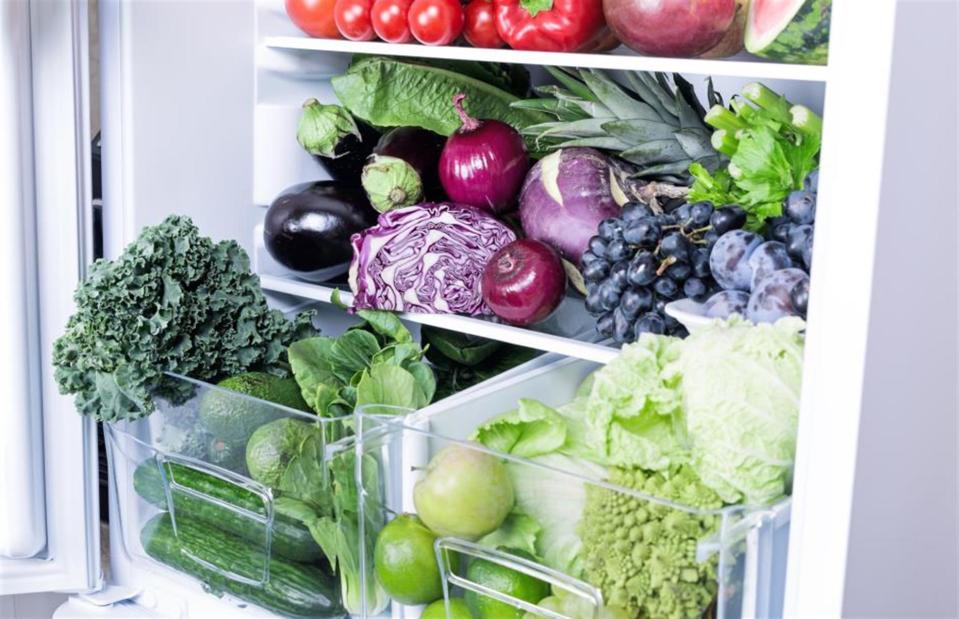
photopixe/Shutterstock
If your fridge and cupboards are constantly full of fruits and vegetables, it's worth investing in an ethylene absorber. These handy little sachets sit next to the produce and soak up all the troublesome gas, extending the life of your fresh produce.
Freeze pesto in an ice cube tray
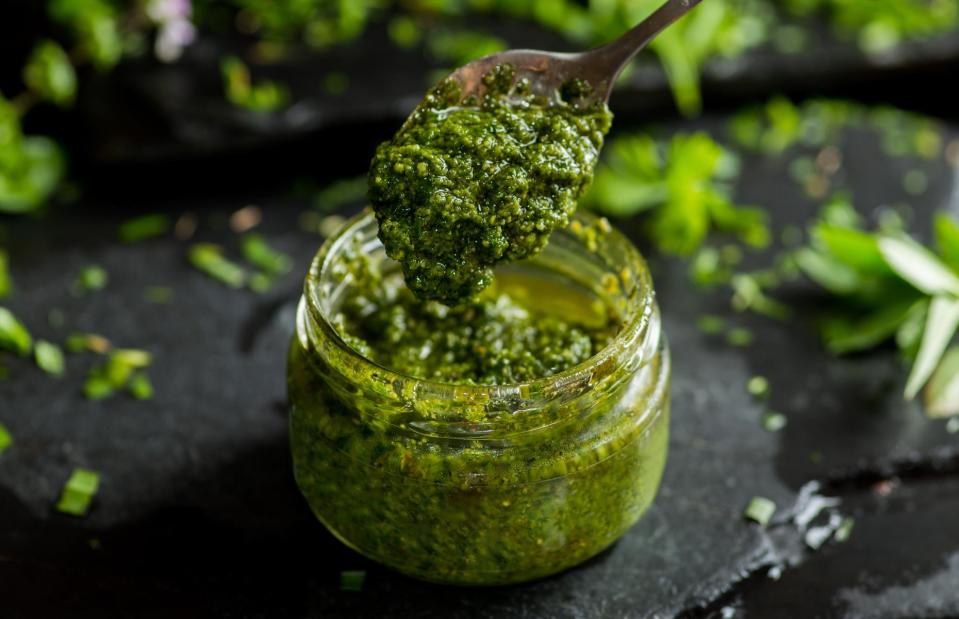
smirart/Shutterstock
Pesto is a great partner for pasta and is also lovely drizzled on roasted vegetables or as a sauce for chicken or fish. However, it can start to spoil incredibly quickly after the jar's been opened. To keep any remaining pesto fresh, spoon it into an ice cube tray and freeze it. That way, you've always got some on hand for when you need it.
Freeze vegetables to make smoothies

JeniFoto/Shutterstock
It's not just frozen fruits that work well in a smoothie. Leafy vegetables such as kale and spinach can be frozen and blended into a whole host of refreshing juices as well. In fact, this hack might just transform your mornings. Try bagging up combinations of fruit and vegetables and freezing, ready to transfer straight to your blender.
Put kitchen roll on top of salad
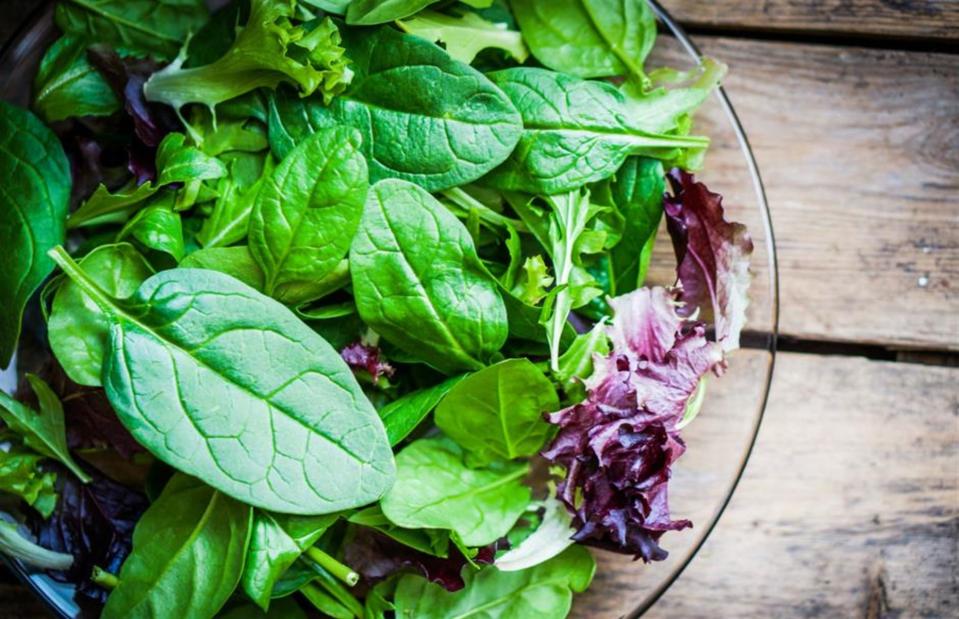
Alena Hauryli/Shutterstock
Salad leaves are great on the first day but, once you've opened the packet, you’ll see a quick decline. There is a way to keep them fresher for longer, though. Simply place a sheet of kitchen roll on top of the leaves – it will soak up any excess moisture, preventing them from wilting as quickly.
Dry herbs in the microwave
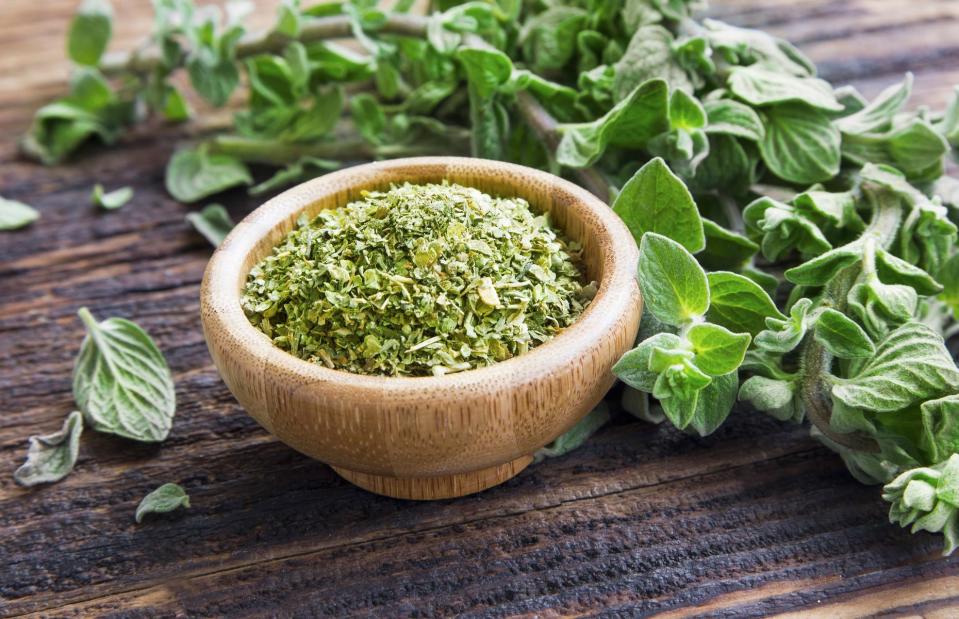
catalina.m/Shutterstock
If you’re struggling to use up fresh herbs before they go bad, you could dry them out and save them for a later date. To do so, place your herbs between two sheets of kitchen roll and zap them in the microwave for one minute, followed by 20-second bursts until they’re completely dry. Store in an airtight jar.
Freeze fresh herbs and chillies in oil
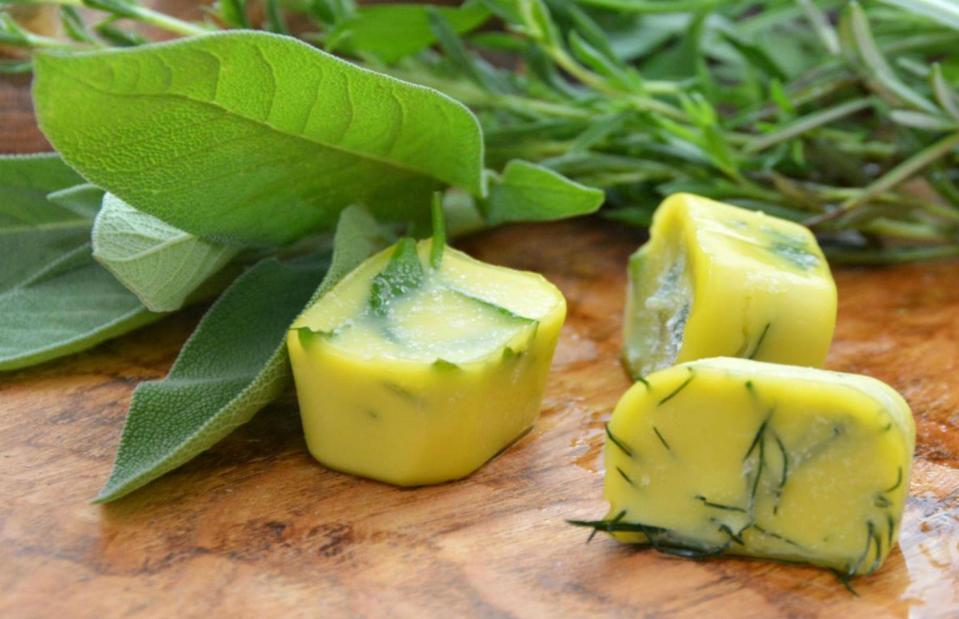
M.Loraine/Shutterstock
Another way to preserve fresh herbs and chillies is to chop them up, pop them into ice cube trays, then top them up with olive oil or melted butter. This will help to retain flavour while also preventing freezer burn (damage caused by air reaching the food). Your frozen herbs and chillies can then be thrown into sauces, soups and stews when you need them.
Pop fresh pasta in the freezer
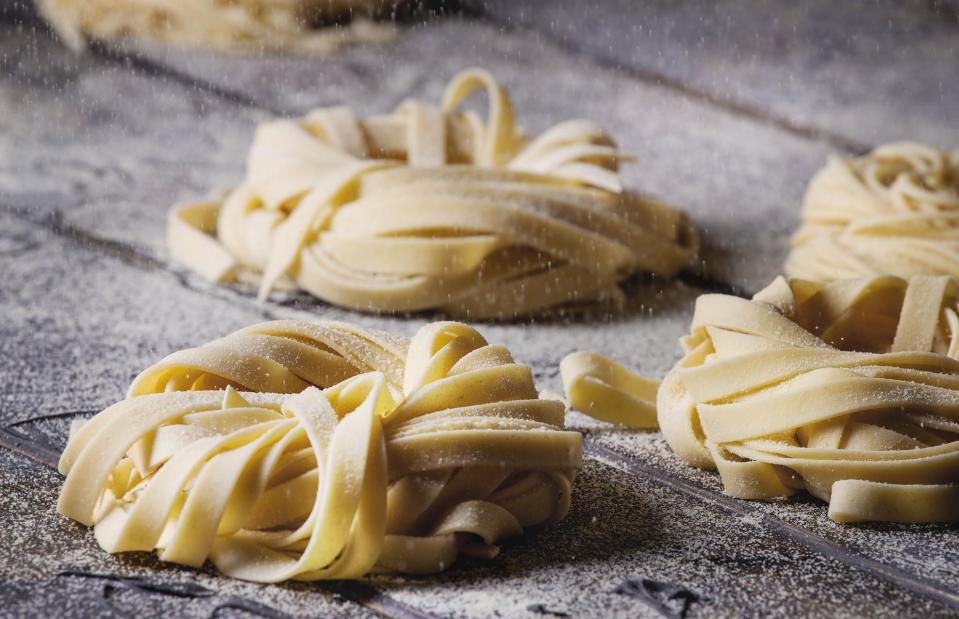
Natasha Breen/Shutterstock
If you've bought fresh pasta and are struggling to use it before it goes out of date – or if you've made your own, and haven't used it all – you needn't throw it away. Properly wrapped, it freezes well and can last for up to two months. Open freeze it, on a tray, and then transfer to suitable freezer bags or boxes. Simply defrost it quickly for those nights when you need a speedy dinner.
Freeze fresh milk
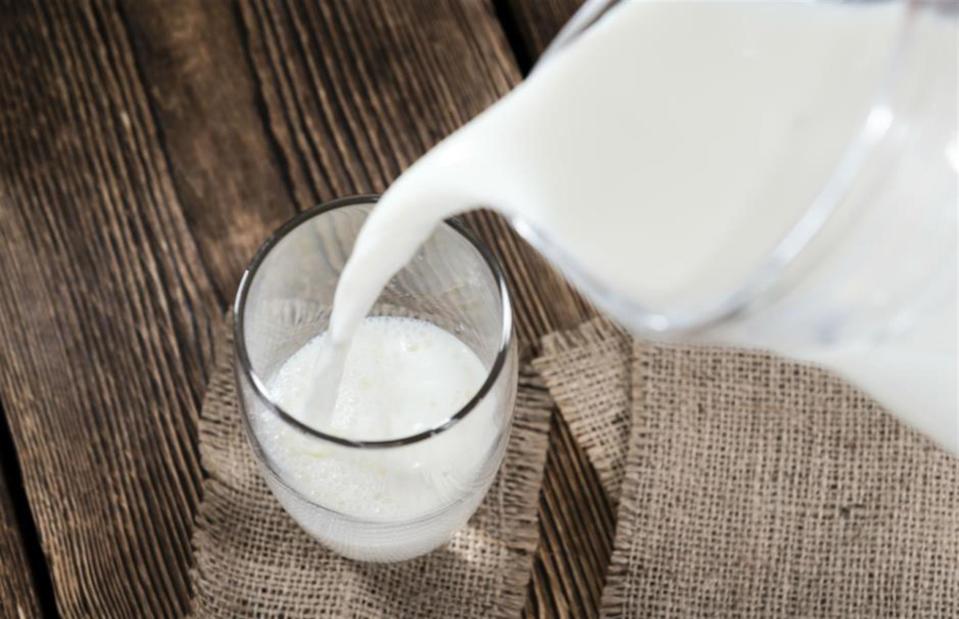
HandmadePictures/Shutterstock
Freezing fresh milk is a great hack to try if you haven't managed to use the whole carton before its use by date. Skimmed or semi-skimmed milk can last for up to a month in the freezer. However, fat requires an extremely low temperature to freeze (lower than the average freezer), so this trick won't work as well with whole milk.
Make yogurt ice lollies
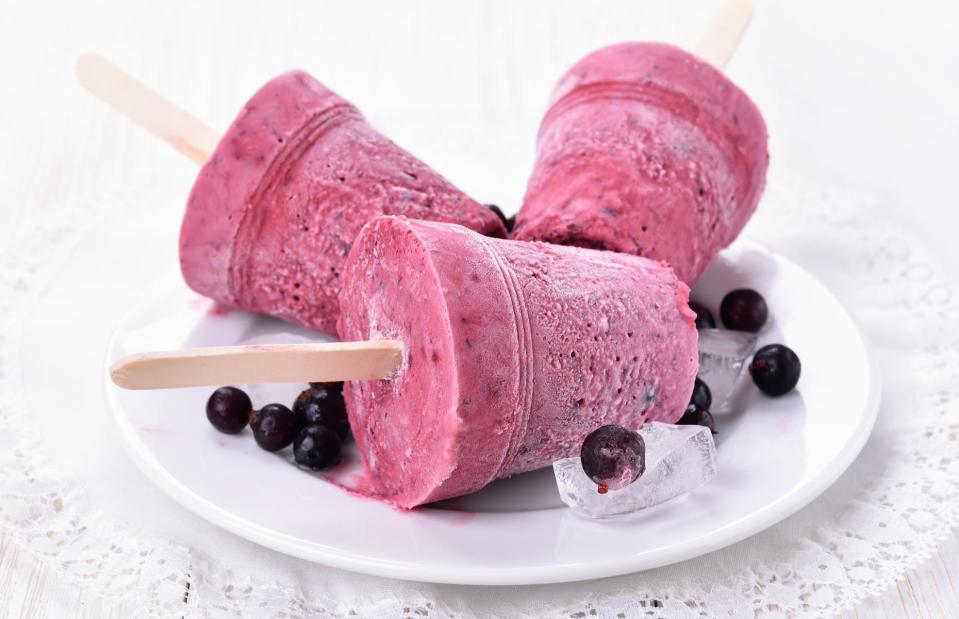
Tatiana Volgutova/Shutterstock
Yogurt won't last forever, but if it's nearing its expiry date, it can be saved from going in the bin. Simply turn it into ice lollies by stirring in some fresh berries and honey, spooning the mixture into moulds and adding some lolly sticks. Pop it in the freezer, et voilà – a refreshing and healthy snack.
Keep sugar in an airtight container
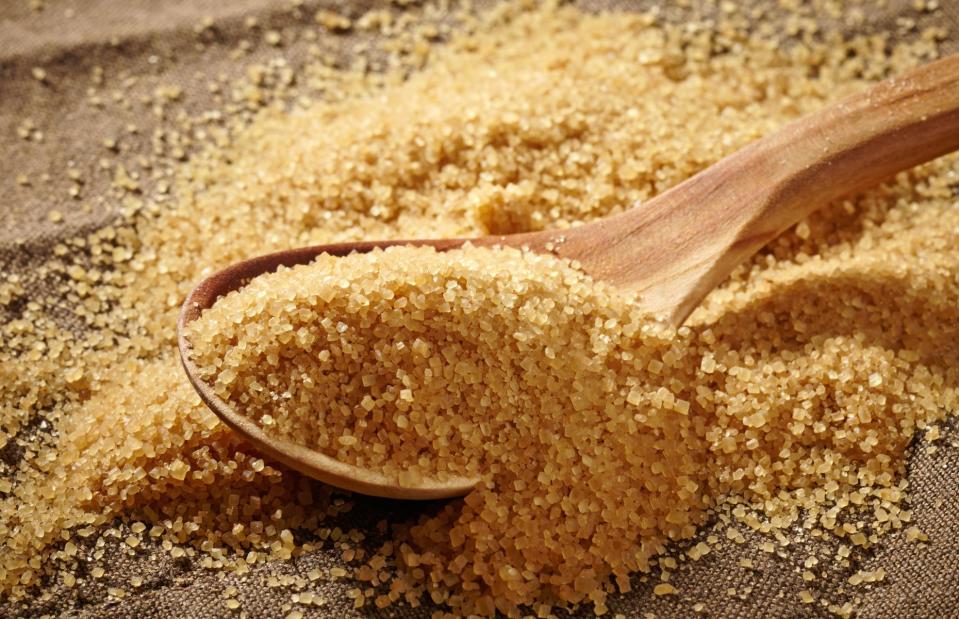
MaraZe/Shutterstock
Fed up with your sugar turning clumpy and hard? This usually happens to brown sugar when it's been exposed to too much air, causing it to dry out – and it happens to white sugar when it's come into contact with too much moisture. Either way, be sure to store your sugar in an airtight container to keep it at its best.
Store flour in an airtight container
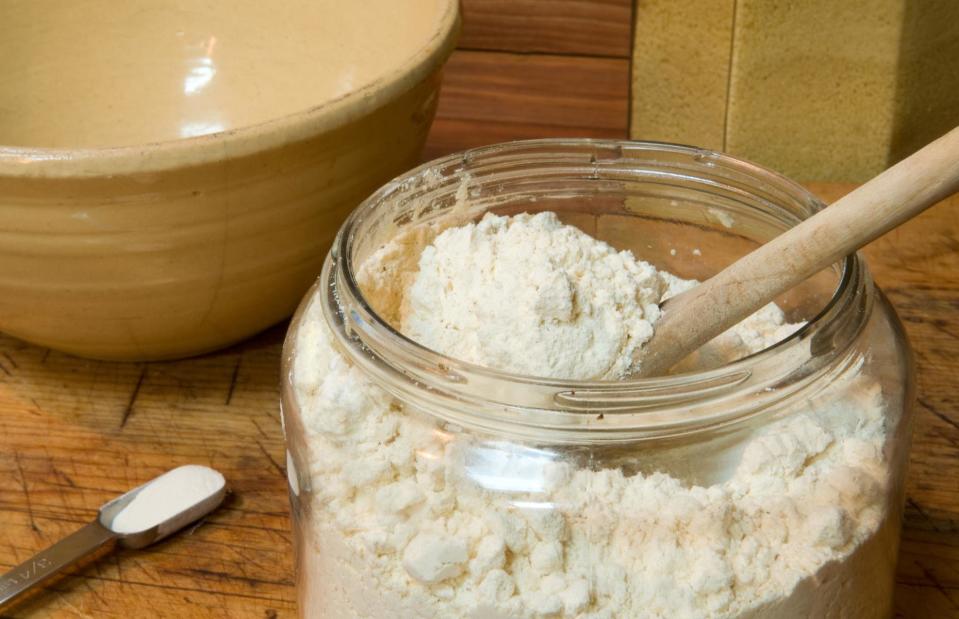
threerocksimages/Shutterstock
Don't be tempted to leave flour in the opened bag that it came in, as this will shorten its lifespan considerably. You’d be better off pouring it into an airtight glass or plastic container, where it will retain its natural moisture. Just make sure the container is properly sterilised and dry before filling it with flour.
Keep beer bottles upright
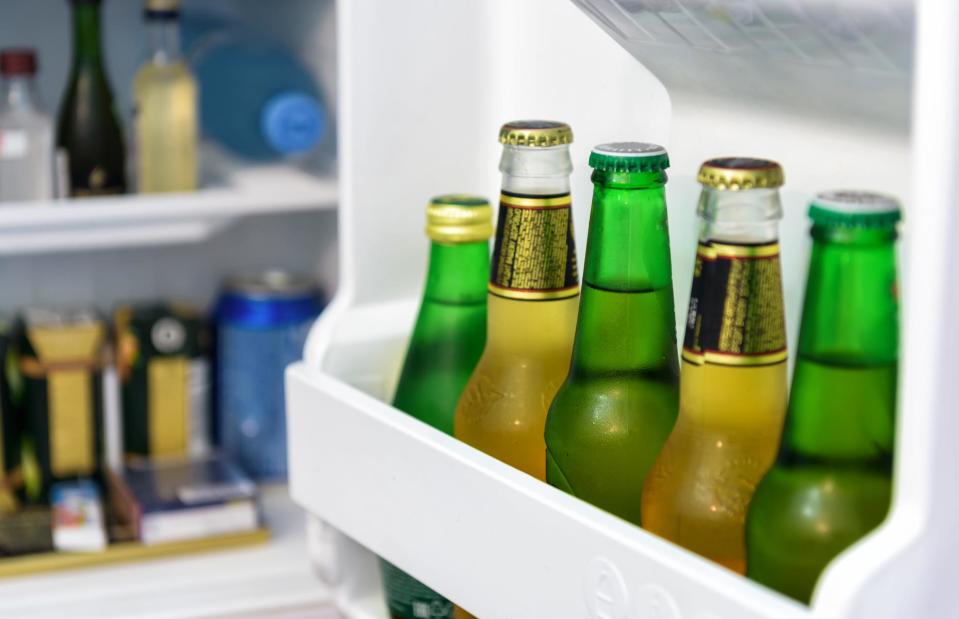
Viacheslav Lopatin/Shutterstock
Want to keep your booze at its best? Don't store bottles of beer on their side. When laid flat, more of the beer's surface area gets exposed to the air in the bottle (rather than just the part at the slim neck at the top). The more the beer becomes oxidised, the shorter its shelf life, so make sure you stand your bottles up straight.
Rinse berries in vinegar
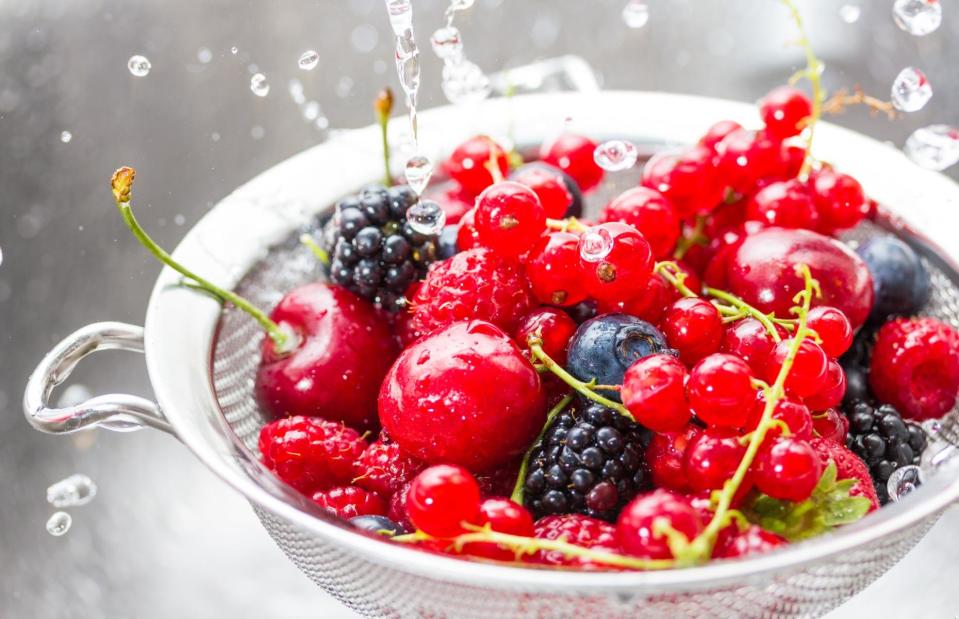
Sasa Komlen/Shutterstock
Berries are delicious fresh, but they don't last for long. To help preserve them, wash them in a mixture of one part vinegar and three parts water, then drain, rinse thoroughly and pop them in the fridge. Don’t worry, it won't make the fruit taste vinegary; it will just kill any germs and help to keep mould away for longer.
Transfer coffee to an opaque container
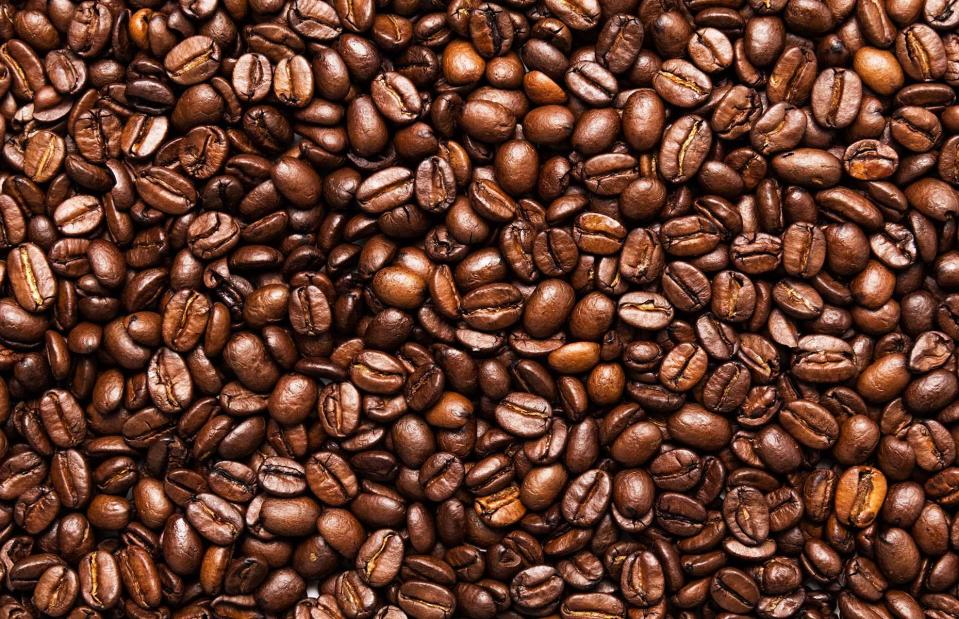
GCapture/Shutterstock
Whether you use whole beans or ground coffee, light is the ultimate enemy. Exposure to light will impair your coffee's colour and taste, causing it to spoil faster. So, while it might be tempting to display your coffee beans in a glass jar, it's best to keep them in an opaque, airtight container in a dark, cool cupboard instead.
Don’t wash fresh produce before putting it in the fridge
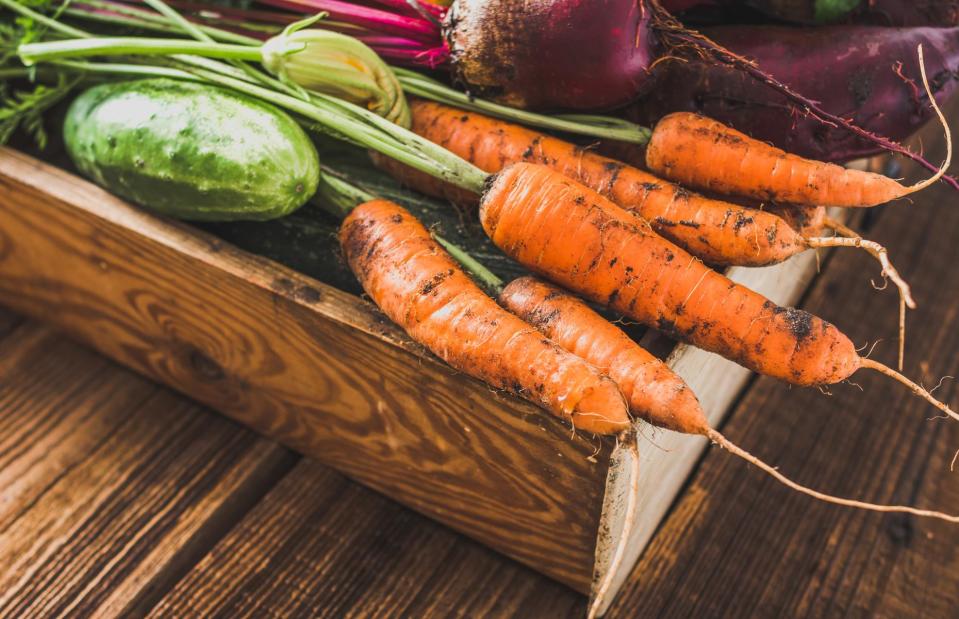
alicja neumiler/Shutterstock
Washing fruit and vegetables before refrigerating them will produce excess moisture, causing them to spoil faster. If you need to give your food a rinse, do it just before cooking or serving instead.
Store mushrooms in a paper bag

VictorH11/Shutterstock
To prevent mushrooms from going mouldy quickly, store them in a paper bag rather than a plastic one. Mushrooms hate moisture – and happily, storing them this way will prevent condensation from forming. The paper bag will absorb any excess moisture, too.
Wrap broccoli in tin foil
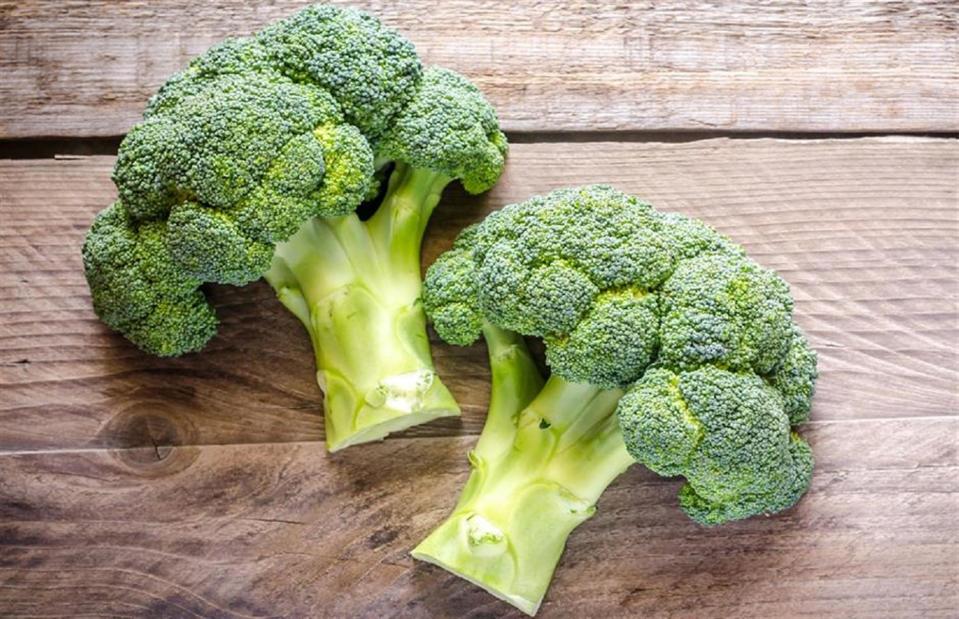
Alexander Prokopenko/Shutterstock
To keep broccoli fresher for longer, cut off the end, then loosely wrap the head in tin foil. Storing it this way will allow excess ethylene gas to escape, while still retaining enough moisture to keep your broccoli fresh. This hack also works wonders for green peppers and celery.
Squeeze lime juice over guacamole

Alexander Prokopenko/Shutterstock
Everyone loves guacamole – but no one likes it when the leftovers go brown in the fridge. The good news is that you can prevent this from happening by adding a squeeze of lime juice; the acidity will help to combat the enzyme that causes the brown colour. When you get your guacamole out of the fridge, pour off any excess juice and give it a stir. Good as new!


